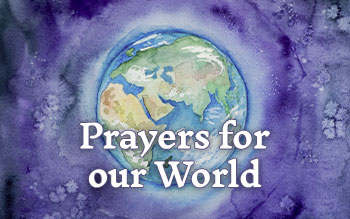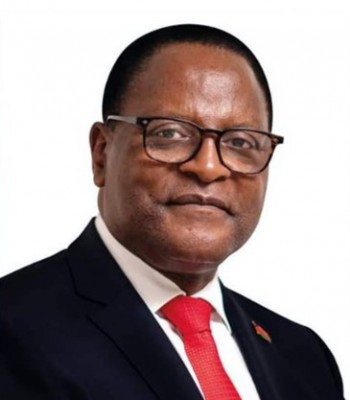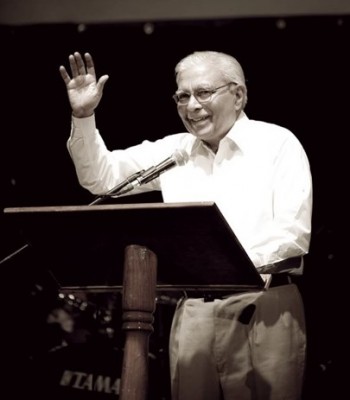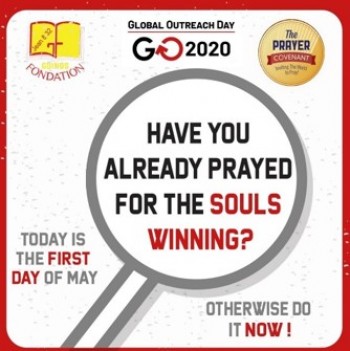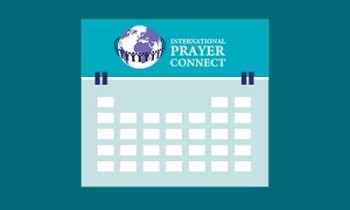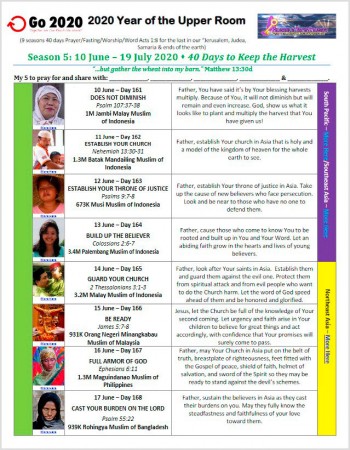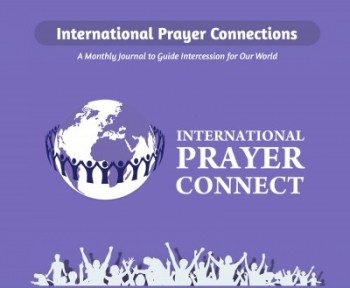
Super User
Lorem ipsum dolor sit amet, consectetur adipisicing elit, sed do eiusmod tempor incididunt ut labore et dolore magna aliqua. Ut enim ad minim veniam, quis nostrud exercitation ullamco laboris nisi ut aliquip ex ea commodo consequat. Duis aute irure dolor in reprehenderit in voluptate velit esse cillum dolore eu fugiat nulla pariatur
The following request was received through Maria Harbajan, IPC's Regional Director for the Caribbean:
1. URGENT Pray for Curacao.
Curacao is a Lesser Antilles island country in the southern Caribbean Sea about 65 km (40 mi) north of the Venezuelan coast.
The Nation has been under siege from within.
It began with mass demonstrations versus the Government over economic issues. They stormed the City and broke into the Government buildings. It has escalated with criminal elements now burning buildings all across the nation, attacking security facilities and threatening government officers.
Dutch troops were sent into the island to assist local police in keeping unrest in check, broadcaster NOS stated on Saturday. The move follows days of violent protests against Covid-19 layoffs which saw demonstrators looting stores and storming the government palace on the island.
The addition of Dutch troops to the island is expected to allow local authorities ease the 9:00 p.m. to 6:00 a.m curfew it has held in place in recent days. A reporter for the broadcaster said that there were dozens of fires set leading into the early morning hours of Saturday, and that the authorities seemed to have a difficult time preventing them from happening.
Unrest on the island was ignited on Wednesday after the local government announced that a number of garbage collectors on the island would be laid off. Protests ensued, which quickly turned into riots that culminated in the storming of the government center Fort Amsterdam on the island's capital city, Willemstad. In addition, large numbers of storefronts in Willemstad were looted, with fires being reported across the island.
A total of 48 people were arrested on Wednesday alone, many of whom were young people suspected of theft and vandalism. According to the local authorities, a number of gangs also took advantage of the chaos in order to run roughshod.
There was concern that the presence of the Dutch military might make matters worse with the imagery reminiscent of the island's history as a Dutch colony.
The Prime Minister has summoned a meeting with Pastor Bakhuis and the Council of Churches to meet with him.
Let's be in prayer that calm can be restored and financial assistance can be brokered for those whose livelihoods have been adversely affected by the pandemic.
Pray also for the over-stretched medical staff on the island as they handle the covid-19 situation.
More: https://nltimes.nl/2020/06/27/dutch-deploy-troops-quell-curacao-riots
 2. Update on Guyana:
2. Update on Guyana:
Beloved , Guyana now awaits judgement at the level of the Caribbean Court of Justice concerning the March 2 Elections results which are still pending.
The hearing will be on July 1st. Of course, we are looking to The Righteous Judge of all the Earth for His judgement. The stakes are great. The warfare Intense, lots of propaganda & misinformation.
We would greatly appreciate your prayer. Both major political parties have grieved the Lord. But God's will & purpose for us, a Church which has failed Him in many ways, is the important factor. We plead for His mercy.
3. Event: 'Intercessors at the Summit... Soaring like Eagles'
We have an Upcoming Intercessors Camp 2020 which is going ONLINE using Zoom. The theme will be: "Intercessors at the Summit...Soaring Like Eagles." Date: July 31 - Aug 1 2020 starting each day at 9am (Jamaican time).
More info will be available shortly at www.nipnoj.org
Opposition leader Lazarus Chakwera has won Malawi's latest presidential race, defeating incumbent Peter Mutharika with 58.57% of the vote. Chakwera is a theologian, pastor and former President of the Malawi Assemblies of God.
Following his victory, the new president said the election — which was a rerun following last year's poll being scrapped due to voting irregularities — was "a win for democracy and justice". He is the first opposition leader in Northern sub-saharan Africa to win a voting rerun after a result has been overturned due to fraud or irregularity.
He said his heart was "bubbling with joy" at the result.
In his speech after being sworn in, Chakwera said: "Time has come for us to go beyond dreaming, time has come for us to wake up, to arise from slumber, and to make our dreams come true.
"With your help we will restore faith in having a government that serves; not a government that rules, a government that inspires, not a government that infuriates, a government that listens, not a government that shouts but a government that fights for you and not against you."
Mr Chakwera worked as an instructor at the Assemblies of God School of Theology from 1983 to 2000 before becoming the Principal in 1996. He was given the name Lazarus following the death of his two older brothers when they were infants -- convinced that his son was going to live, Chakwera's father named him after the Biblical character who was famously raised from the dead by Jesus Christ.
Speaking to the BBC after being sworn in on Sunday, Chakwera promised to unite the troubled African nation and root out government corruption.
He said: "There's no cause for fear because I will be your president and my policy for inclusivity means we are building a new Malawi for all of us. I'm not a president of a faction, I'm a president of everyone in the country. I want to provide leadership that makes everybody prosper, that deals decisively with corruption and theft of public funds and a leadership that will follow the rule of law."
The new president added: "I do feel like Lazarus, I've come back from the dead, it's been a long journey and we feel vindicated in a way."
Following his victory, on Twitter, he simply wrote: "Thank you, my Lord Jesus."
Praise God for the election of this Christian President who honours and publicly professes his faith in God.
Pray that President Chakwera will quickly win the trust and confidence of all of the people of Malawi.
Pray for God-given wisdom for Lazarus Chakwera as he appoints his government and implements his manifesto.
Pray that the President will develop and strengthen the Malawi economy so the country will not need to depend on foreign aid.
Watch a video of Lazarus Chakwera telling his testimony to God’s grace.
He is affectionately called Patrick Annan; He accepted the Lord Jesus Christ as a child and went on to become a powerful intercessor even as a child. Filled with the baptism of the Holy Spirit, he operated in the gifts of the Holy Spirit especially in Words of Knowledge and Prophecy. I remember him saying that he prayed overnight and the Lord brought his mother back to life from the clutches of death.
He lived a very disciplined life of prayer and bible reading from his teenage days and would spend long hours in personal meditation of the word and prayer. He believed in a lifestyle of prayer, meditation of God's word, and simple, sacrificial living. His second son Jim Elliot died of Malaria in 1994 on the mission field in Jharkhand state, India. Jim was my friend at the university, and played a vital role in my life as a believer.
Mr. Joshua joined Friends Missionary Prayer Band (FMBP) almost from its inception and started serving in various capacities until he was appointed as General Secretary. With his rich experience and expertise, he was able to steer FMPB to new heights and was instrumental in making FMPB one of the most effective and successful indigenous missionary organizations with the highest number of missionaries serving in the remotest parts of India.
While serving in missions for decades, Patrick had a call and personal visitation from the Lord to unite the larger body of Christ for Prayer and Revival, hence the National Prayer Network was born in 2002.
God connected us supernaturally in the year 2002 after my call from the marketplace to ministry. I served along with him and the journey took both of us to around 300 plus cities and several nations to unite and trigger the passion of united prayer and revival.
Since 2002 Patrick played a vital role in the International Prayer Council and his presence in the global prayer gathering with his soft speech drew many to intercession. I also remember that he used to spend much time praying for America, which led us to mobilize prayer for the USA. We travelled several times to this nation visiting many states and encouraging the churches in the USA to pray without ceasing for a great awakening.
It is a sad day for the Christians in India and especially for the prayer movement in India. I lost a spiritual dad and a mentor who recognized the call of God and trusted me to serve along with him in the nations.
What I am now is what he has invested in my life - not with teaching, but by practice.
Surely there is a celebration in the Heavens,
R. Onassis Jeevaraj
This email address is being protected from spambots. You need JavaScript enabled to view it./ +91-98401-55251.
Co-Founder and Initiator- National Prayer Network,
India National Director, India – GO2020,
Executive Board Member – International Prayer Council (IPC), www.ipcprayer.com
Chief Executive Director – Window International Network (WIN), www.win1040.org
Video obituary from Dr Jason Hubbard, IPC’s Executive Coordinator
Video obituary from Tom Victor, IPC’s Senior Advisor and Exec Team Member
Video obituary from Pastor Austen Ukachi, IPC’s West Africa Regional Director
More: https://efionline.org/2020/06/18/a-tribute-for-mr-patrick-joshua/
'
The original plan for Go 2020 Kids in Africa was to mobilize 1 million children across 31 nations where the Prayer Covenant for Children was active. Each child would be challenged to reach out to 20 students during May with a Prayer Covenant for Children Prayer Card that included the Gospel message, designed by the children, on the other side.
The Pandemic, of course, closed the schools and most to the actual “outreach” part of those plans had to be put on hold until the schools open again. But prayer was mobilized with current numbers showing 700,000 participating by praying for those they want to reach. And new doors opened for Go 2020 Kids to be active, like the radio stations that partnered with the All Africa Baptist Youth Fellowship (21 denominations) to allow daily “on-air” prayer programs across 19 nations in multiple languages.
Two days of prayer and fasting were observed on May 28 and 29.

Then on Saturday, May 30, children went to the streets to share the Gospel. Here’s one report from Elias about Go 2020 Kids. It represented the activity of just one church in Togo on Go Day.
The experience of children spreading the Gospel was very fruitful as 22,004 evangelistic tracts were distributed by the children in our church in Togo - during May 30 – Go Day!

It was an excellent experience for children to have the opportunity to be part of God’s mission by sharing the Gospel.
They were so excited as they first enjoyed praying for winning souls.
They see themselves no longer as useless people to God.
Many Christians, especially youth and adults, saw themselves as lazy as they saw children committed to share the Gospel
This morning I got a voicemail from one Christian brother who found my number on the outreach cards that children gave out during Global Outreach Day. He confessed that he was very touched to see children committed to evangelism and he was impressed and edified by the tool of the Prayer Covenant for Children evangelism card.

2020 a year of evangelism across the UK
90 Days of HOPE - 1 June - 31 August 2020
Global Day of HOPE – 29 August 2020
www.globalvoiceofprayer.com
Intercessors at the Summit...Soaring Like Eagles.
July 31 - Aug 1. (Start at 9am Jamaica time)
www.nipnoj.org
National Prayer Assembly (USA), Washington, D.C., October 14-15
www.nationalprayerassembly.com
Movement for African National Initiatives – Abidjan, Ivory Coast, 8-12 March 2021
https://maniafrica.com/category/prayers/
 UPRising Events Calendar
UPRising Events Calendar
UPRISING Chile – November 2020 (Date TBA)
GLOBAL UPRISING Manila, Philippines, Nov 2021
www.unitedprayerrising.com
UPRISING MINDANAO (Mindanao, Philippines)-- dates TBA
- UPRISING BUKIDNON (Northern Mindanao)
- UPRISING CARAGA (Butuan, Bislig, and Surigao)
- UPRISING DIGOS (Davao Del Sur)
- UPRISING CENTRAL MINDANAO (South Cotabato, Cotabato, Sultan Kudarat, Sarangani, and General Santos)
FB: United Prayer Rising Mindanao
FB: United Prayer Rising North Mindanao
IG: @uprisingmindanao
The theme for the guide for 10 Jun to 20 July is 'CONSERVING the HARVEST'
Practical Tips
Pray on the go… to work, out and about, take the name of the unreached group of the day, or the 5 friends you are praying for, put a marker on your phone to remind yourself to pray for the lost around you.
A moment in your day… take a moment to open the 40 days of prayer guide, Listen to Jesus, what is He saying about those in your Jerusalem, Judea, Samaria and ends of the earth?
For more information on the Unreached People Group of the Day, go HERE
Download the Mobile App on your phone
Pray for 5 ?? (neighbors, co-workers, friends, family members)
PRAY WITH OTHERS: In your triplet, or small group, even online, have a moment for a time of repentance (personal and for the sins of our nations), a time to focus on others and the lost, and a time to yearn and long for God’s Kingdom to come on earth as it is in Heaven.
Download as a Read & Print PDF
We are pleased to bring you IPC Connections for June 2020.
We are compiling this International Prayer Connections Newsletter a few days ahead of Pentecost Sunday. There is a great sense of expectancy as we approach this time when we celebrate the empowering of the Holy Spirit from on high.
Readers will be encouraged as they read this article on our website in which Dr Jason Hubbard talks us through the significance of the Ascension of our Lord Jesus, which 'bridges the Passover to Pentecost'. Jason exhorts us to meditate on the exaltation and ascension of Jesus and give him his due reward! 'Let’s return to the place of united worship-saturated prayer, around the throne, around the clock and around the globe all for the Glory of the Lamb!'
 Pentecost Weekend also marks Global Outreach Day when Christians around the world will be sharing their faith. GodTV have partnered with GO2020 to present broadcasts over the weekend to train Christians in personal evangelism. Let’s continue to be praying for this initiative which seeks to reach 1 billion worldwide for Christ!
Pentecost Weekend also marks Global Outreach Day when Christians around the world will be sharing their faith. GodTV have partnered with GO2020 to present broadcasts over the weekend to train Christians in personal evangelism. Let’s continue to be praying for this initiative which seeks to reach 1 billion worldwide for Christ!
Watch the GO 2020 Video | Download the Brochure | Download the June Prayer Guide
Many of the IPC networks will be joining in the Sound from Heaven global broadcast on 31st May. See the calendar below for details of some of the many Pentecost events taking place this next few days.
The vision and mission of GO2020 continues with the 90 Days of HOPE which runs from June 1st through to August 2020, which encourages us to continue to put our prayers into action with evangelism and sharing our faith. Download the Flyer Here
In this edition of IPC Connections, we are headlining GO2020 Kids – which aims to teach children and young people how to pray and unashamedly share their faith at home, in schools and across their communities. IPC colleagues, Tom Victor and Candy Marballi have prepared several informative and encouraging articles to excite and enthuse us about what is already happening across the regions. To use Tom’s words, please only read these articles ‘if you are a kid or have been one!’. Humorous but also challenging words that remind us in the Kingdom context that we need to become like children. (Matt 18) Let’s be praying for this important area of mission and seeking God as to how we can all be more involved with it.
 The covid-19 pandemic has brought massive challenges to every nation of the world. In this edition, we bring some top level updates, prayers and links to partner organisations resources. Many of us are assisting brothers and sisters who are serving the Lord as pastors and mission workers in lesser-developed countries. As well as praying, we are conscious of a massive humanitarian impact that the lockdowns are causing that demands our practical and sacrificial financial responses.
The covid-19 pandemic has brought massive challenges to every nation of the world. In this edition, we bring some top level updates, prayers and links to partner organisations resources. Many of us are assisting brothers and sisters who are serving the Lord as pastors and mission workers in lesser-developed countries. As well as praying, we are conscious of a massive humanitarian impact that the lockdowns are causing that demands our practical and sacrificial financial responses.
The resulting 'lockdown' has changed how the Church meets and how conferences happen with many gathering online using zoom, skype, Teams, Facebook Live, Youtube and other apps. Our colleagues at IPC have regularly been jumping between two or three events across the continents with a few clicks of a mouse. Delegates of regional events such as the Caribbean Prayer Summit this last week are excited about how technology makes such gatherings accessible and so much cheaper to attend. 'Virtual hugs and 'zoomed out' are becoming new phrases that we are all familiar with. Please pray for the IPC Exec and our regional teams as we explore how to take the utilisation of online gatherings forward.
We are keen to get to know our ‘network of networks’ better and to understand how we can best keep you connected and informed. Over the next ten days, we will be emailing all of our contacts to invite you to let us know a little more about you and your organisation. The info that you provide will only be used by IPC. We won’t be selling or sharing it with anyone else. Thank you in advance for your participation!
Did you know that IPC is on Facebook, Twitter, Instagram and Youtube?! Please like, follow and share us, to help get the message out!
International Prayer Connections is produced and distributed freely each month to inform God's praying people around the world. We are grateful to those who have given generously to enable this to happen and continue to need such support for this and our other transformational prayer initiatives.
If you can make a gift towards our costs by giving to our funding arm, the Transformation Prayer Foundation, we would appreciate it. Please click here.
Thank you for continuing to partner with us in catalysing united prayer across nations, denominations, movements, and generations for the fulfilment of the Great Commission.
As we approach Pentecost 2020, let’s ask the Lord for a ‘greater Pentecost,’ a wave of the tangible presence and power of the Holy Spirit coming upon us with great revelation, with great anointing, and with great provision!
May we express grateful thanks to Andy Page and the IPC Editorial Team who put this email together each month.
Wishing you His continued blessings,
Jason Hubbard - Executive Coordinator
John D Robb – Chairman - International Prayer Connect
Tom Victor of ‘Great Commission Coalition’ and Candy Marballi of ‘The Children’s Prayer Covenant’ (both are members of the IPC’s Leadership Team) have put together a special selection of stories about how children around the world are and will be involved with Go 2020 Kids. We trust you will be encouraged to pray for and get involved with these initiatives!
It may be the largest united evangelistic outreach in history as churches, denominations, ministries, networks and even movements have united together with the goal of mobilizing 100 million believers to pray for and to reach out to 1 billion others during the month of May 2020.
The theme has been, “Every Believer A Witness!” And children have been invited to join us.
 But why children? What can they do? How will they be involved? Great questions!
But why children? What can they do? How will they be involved? Great questions!
Remember when parents wanted to bring their children to meet Jesus and his disciples tried to stop them? When Jesus saw this, he was indignant. He said to them, “Let the little children come to me, and do not hinder them, for the kingdom of God belongs to such as these.” Mark 10:14
Jesus was really angry with his disciples. He wanted the children to come to him so he could bless them. He said the kingdom of God belongs to them.
In another place his disciples wanted to know who would be the greatest in the kingdom of heaven. What did Jesus do? He called a little child to him, and placed the child among them. And he said: “Truly I tell you, unless you change and become like little children, you will never enter the kingdom of heaven. Matthew 18:2-3
 Children are a top priority to Jesus.
Children are a top priority to Jesus.
- He wants them to come to him
- He tells us the kingdom belongs to them
- He tells us that we need to become like them in order to enter the kingdom of heaven
We’ve put together some stories about how children around the world are and will be involved with Go 2020 Kids. But first we want to share briefly how God has used kids throughout history. And we want to share how you can be involved in helping to empower the children you love to become Go 2020 Kids.
But before we go further, there are a couple of rules we want you to follow.
Rule #1: You should only read these stories if you are a kid or were a kid sometime in your life. (Otherwise you probably won’t understand them at all!)
Rule #2: You should pray and ask God if he wants you to know about Go 2020 Kids. (That way, if he says “Yes,” you can ask him to help you see the children the way he does and you can plan time to read the stories or watch the videos later if you are too busy right now.)
Rule #3: Ask God to show you if there is someone he wants you to share about Go 2020 Kids
 OK, let’s get started with The Historical Testimony - how God used Children throughout history. Here’s a little 3-minute animated video to share that story. https://www.youtube.com/watch?v=v-_qCB2pAAI&t=7s
OK, let’s get started with The Historical Testimony - how God used Children throughout history. Here’s a little 3-minute animated video to share that story. https://www.youtube.com/watch?v=v-_qCB2pAAI&t=7s
 Go 2020 Kids and Children in Prayer: More recently, beginning 25 years ago, 40 children were invited to be delegates at a Global Mission Conference. God moved and the Children In Prayer Movement was launched. Here’s the story of their part with Go 2020 Kids.
Go 2020 Kids and Children in Prayer: More recently, beginning 25 years ago, 40 children were invited to be delegates at a Global Mission Conference. God moved and the Children In Prayer Movement was launched. Here’s the story of their part with Go 2020 Kids.
**(#2 World Shapers Club)
 The 4 to 14 Window Movement launched in 2009, calling on the Global Church to focus on Children, ages 4 to 14. In a few short years it spread to almost every nation on the planet. While calling the Church to reach these who were the most responsive to the gospel, it also challenged us to release them to be “full partners” in God’s mission. There is no Junior Holy Spirit. Here’s a 3 minute animated video introduction: https://www.youtube.com/watch?v=d7AS24VlydM&t=27s
The 4 to 14 Window Movement launched in 2009, calling on the Global Church to focus on Children, ages 4 to 14. In a few short years it spread to almost every nation on the planet. While calling the Church to reach these who were the most responsive to the gospel, it also challenged us to release them to be “full partners” in God’s mission. There is no Junior Holy Spirit. Here’s a 3 minute animated video introduction: https://www.youtube.com/watch?v=d7AS24VlydM&t=27s
 Go 2020 and the Prayer Covenant for Children. Prayer, of course, is our First Action. World Shapers and the Royal Kids have been praying faithfully for Go 2020 Kids, as have others. The Prayer Covenant for Children, our first “official” partner, was the one that provided the key Prayer Resource for Go 2020 Kids.
Go 2020 and the Prayer Covenant for Children. Prayer, of course, is our First Action. World Shapers and the Royal Kids have been praying faithfully for Go 2020 Kids, as have others. The Prayer Covenant for Children, our first “official” partner, was the one that provided the key Prayer Resource for Go 2020 Kids.
In less than six years God has used the Prayer Covenant for Children to disciple more than 5 million children in 50+ nations into a “life-style” of prayer. As you read further, you will hear reports from Go 2020 Kids Team members in Africa, Asia and around the world sharing about the power of the Prayer Covenant for Children. You well also meet some of them through these two Prayer Covenant for Children equipping videos produced for a 4 to 14 Window Global Forum. I’m sure they will inspire you to consider how this key Go 2020 Kids Prayer Resource could impact you children, grandchildren, church or ministry. It’s all downloadable for free!
Prayer Covenant for Children - Part 1
Prayer Covenant for Children - Part 2
Download the Best News Ever e-book pdf which explains the Gospel message to children.
Download the Prayer Covenant e-booklet
Download the Prayer Covenant bookmark
Asia holds ½ of the world’s children - 1 billion of the 2 billion children on the planet under the age of 15. And because of the deep entrenchment of religious and political systems that resist the message of Christ, it is also the region of the world least reached by the gospel. How could Go 2020 Kids help to change that?
 Go 2020 Kids Southeast Asia and Campus Crusade for Christ - The 11 nations of Southeast Asia are amazingly in the diversity of their peoples, religions and cultures. But there is a vision to see their children discover their common identity in Christ.
Go 2020 Kids Southeast Asia and Campus Crusade for Christ - The 11 nations of Southeast Asia are amazingly in the diversity of their peoples, religions and cultures. But there is a vision to see their children discover their common identity in Christ.
**(#3 Go 2020 Kids: Cru Southeast Asia)
 Go 2020 Kids Northeast Asia and YWAM Kings Kids - Go 2020 represents the largest united prayer and evangelistic thrust in history. Asia represents ½ of the world’s children. What could happen if God continued to unite the whole Church to be “on mission” with him, including the children. Let’s be the answer to the prayer of Jesus!
Go 2020 Kids Northeast Asia and YWAM Kings Kids - Go 2020 represents the largest united prayer and evangelistic thrust in history. Asia represents ½ of the world’s children. What could happen if God continued to unite the whole Church to be “on mission” with him, including the children. Let’s be the answer to the prayer of Jesus!
**(#4 Go 2020 Kids: Kings Kids International - Taiwan)
 Africa is by far the youngest continent with 41% of the population under 15 years of age. They had major plans to mobilize one million Prayer Covenant Children to reach 20 million other children with the gospel for Go 2020 Kids. Covid-19 altered the plans but not the passion. You can hear how God is using 9-year old Gifty from Togo to mobilize and lead other children to Christ as well as from Elias, the Continental Director and Apollos, the Nigerian Director on Part 2 of the Prayer Covenant for Children Video above. Here’s the Go 2020 Kids update from Elias for Africa and from Fidele in Burkina Faso.
Africa is by far the youngest continent with 41% of the population under 15 years of age. They had major plans to mobilize one million Prayer Covenant Children to reach 20 million other children with the gospel for Go 2020 Kids. Covid-19 altered the plans but not the passion. You can hear how God is using 9-year old Gifty from Togo to mobilize and lead other children to Christ as well as from Elias, the Continental Director and Apollos, the Nigerian Director on Part 2 of the Prayer Covenant for Children Video above. Here’s the Go 2020 Kids update from Elias for Africa and from Fidele in Burkina Faso.
**(#5 Go 2020 Kids: Prayer and Outreach – Africa)
 Hadassah is a 13-year old missionary with a passion for God and for lost people. She became a missionary at age 8. She knows the power of fasting and prayer and how God can use anyone, even children. She recently shared a challenge on the World Prayer Together call with leaders from around the world. Now she wants to help other children find their calling as Go 2020 Kids. She’s written up a bit of her story for you here.
Hadassah is a 13-year old missionary with a passion for God and for lost people. She became a missionary at age 8. She knows the power of fasting and prayer and how God can use anyone, even children. She recently shared a challenge on the World Prayer Together call with leaders from around the world. Now she wants to help other children find their calling as Go 2020 Kids. She’s written up a bit of her story for you here.
**(#6 Hadassah Lawson’s Inspiring Testimony)
 Children by Nations helps us see what we sometimes miss. There are more than 2 billion children under the age of 15, almost 26% of the world’s population. India has the most with more than 376 million. It is a major focus for Go 2020 Kids. More than 41% of Africa is under 15. Only 3% are over 65. You can download the document Children by Nation to see where the children live. Many have found it helpful to focus their prayers.
Children by Nations helps us see what we sometimes miss. There are more than 2 billion children under the age of 15, almost 26% of the world’s population. India has the most with more than 376 million. It is a major focus for Go 2020 Kids. More than 41% of Africa is under 15. Only 3% are over 65. You can download the document Children by Nation to see where the children live. Many have found it helpful to focus their prayers.
**(#7Children by Nations)
 From the very beginning of Go 2020 Kids many on our team felt this was more about a “life-style” than it was about a “campaign month.” COVID-19 has certainly shifted many of the planned events and caused everyone to think differently. Go 2020 has now become a call for all of us to Go – for the whole year – and beyond. But for the Children we are seeing new opportunities, something we are calling the Go 2020 Kids ‘Good News’ Super Challenge.
From the very beginning of Go 2020 Kids many on our team felt this was more about a “life-style” than it was about a “campaign month.” COVID-19 has certainly shifted many of the planned events and caused everyone to think differently. Go 2020 has now become a call for all of us to Go – for the whole year – and beyond. But for the Children we are seeing new opportunities, something we are calling the Go 2020 Kids ‘Good News’ Super Challenge.
- It’s a call for children everywhere to step up and take the Greatest Super-Power ever, God’s love, to someone that needs it most.
- It’s a call for us “older kids” to step up and become “coaches” and “encouragers,” to help the children learn to hear from the Super Coach. He wants them fully active on his team - but there are many others seeking to distract them.
- And it’s also a call for us “older kids” to find our “inner child” because Jesus himself told us that, “Truly I tell you, unless you change and become like little children, you will never enter the kingdom of heaven. (Matthew 18:3)
Here’s our Working Draft of the Go 2020 Kids “Good News” Super Challenge. It is a Working Draft because it will need to be contextualized for every culture and every family and every child.
(#8 Go 2020 Kids “Good News” Super Challenge)
Pray for Go 2020 Kids:
- Pray that God would visit and pour out His Spirit on children around the world during this Pentecost season - in fulfillment of Joel 2:28
- Pray that God would help us all to see the 2+ billion children in the world as “full partners” in God’s mission - in fulfillment of Matthew 19:14
- Pray that God would help us “older children” to discover our true Kingdom identity as children - in fulfillment of Matthew 18:1-5
More info on most of the resources on GO2020 Kids can be found here: http://www.prayercovenant.org/go2020-kids.html
See the GO2020 Resources page here: https://go2020usa.com/resources/
Introducing ‘World Shapers Club’ - Partners of G02020 Kids!
THEN - 1995: 40 children and teenagers, representing 8 nations, converged on the world scene as full-fledged delegates and intercessors at the Global Consultation on World Evangelism in Seoul, S. Korea. God drew the attention of world leaders to all He has put into the spiritual DNA of our children and youth.
 NOW - 2020: Twenty-five years later, millions of children and youth have been mobilized to partner with adults in prayer and missions. Generation Now, fully participating in the “Great Commission!”
NOW - 2020: Twenty-five years later, millions of children and youth have been mobilized to partner with adults in prayer and missions. Generation Now, fully participating in the “Great Commission!”
World Shapers Club (WSC): In May 2019, Shapers began praying into the Go2020 vision for families, neighborhoods and nations. Its May 2019 calendar was totally devoted to Go2020 as well as two prayer points moving forward each month. “Focus on Five” to hear and receive the “good news” about Jesus was a repeated theme.
WSC plans for May 2020 outreaches had to be cancelled due to the covid-19 crisis. BUT GOD! WSC leaders and their families have gone door-to-door delivering aid packages, prayer calendars, prayer AND JESUS to individuals and families!
 Just days ago, a WSC began in a Rwandan refugee camp where many families, including some of our Shapers took shelter from severe flooding that destroyed their homes. Sixty-three children and youth joined WSC and ten adults came to know Jesus!
Just days ago, a WSC began in a Rwandan refugee camp where many families, including some of our Shapers took shelter from severe flooding that destroyed their homes. Sixty-three children and youth joined WSC and ten adults came to know Jesus!
Partnership with Go2020 Kids has given our Shapers a greater understanding of the global alliances in which they participate each month and it has also brought some of our WSC Ambassadors and Directors closer together.
In some areas, three times the number of monthly calendars were printed and distributed. More people have been reached this way than what our original plans might have accomplished. At the intersection of Go2020 & Covid-19, God had already prepared a force to seize the “day!”
More Info and Sign Up: https://esthernet.net/category/eni/world-shapers-club
Mary Tome
Esther Network International / World Shapers Club
